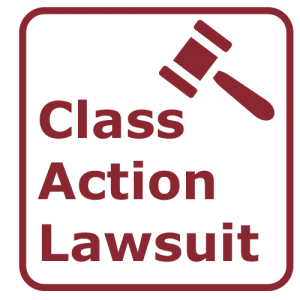Toughness in Numbers: Discovering the Influence of Class Action Lawsuits
Toughness in Numbers: Discovering the Influence of Class Action Lawsuits
Blog Article
Trick Variables to Consider in Class Action Claims: Insights for Legal Representatives
Course activity suits can be complicated and difficult for legal representatives to navigate. From course certification requirements to damages computations and settlement negotiations, there are a number of essential aspects that require to be meticulously taken into consideration. Recognizing these factors and their effects is essential for attorneys aiming to efficiently represent their clients in class action legal actions. By diving right into the ins and outs of course action litigation, this discussion intends to give beneficial understandings for legal representatives looking for to navigate this elaborate legal landscape.
Course Accreditation Requirements
To wage a class activity claim, attorneys should navigate with a series of stringent class certification needs. Course qualification is a critical stage in the lawsuits process that determines whether a group of complainants can be accredited as a class and wage their cases collectively. These needs offer to guarantee that course actions are ideal and efficient systems for fixing disputes including numerous plaintiffs.
Among the main needs for class accreditation is numerosity. This criterion demands that the course be so numerous that joinder of all participants is unwise. While there is no fixed mathematical limit, courts typically take into consideration a class with more than 40 participants as sufficiently various. In addition, commonality is one more crucial consider class qualification. It requires that there are questions of legislation or reality common to the class, which need to predominate over specific issues.
Competence of representation ensures that the representatives will rather and appropriately secure the rate of interests of the course participants. A course action have to additionally satisfy the requirement of prevalence, implying that a class activity is an exceptional method for settling the conflict compared to various other available approaches.
Browsing through these course accreditation requirements can be intricate and challenging for lawyers. Nevertheless, understanding and meeting these needs are important to successfully go after a course action legal action in support of a team of plaintiffs.

Commonality of Claims
The following vital aspect to consider in the course qualification process is the commonness of cases among the complainants. Commonness refers to whether the course members share comparable lawful issues and inquiries of truth that can be fixed collectively. To put it simply, it is needed to figure out if there prevail concerns of law or truth that are central to the lawsuits and that predominate over any kind of individual concerns.
To establish commonality, the complainants should show that there are legal or valid issues that prevail to the entire class. This can be achieved by identifying a common program of conduct or a common lawful concept that underlies the insurance claims (Class action lawsuit). The visibility of typical questions is very important because it promotes judicial efficiency and economic situation by enabling a single choice to resolve the problems for the whole course
However, it is very important to note that the commonality requirement does not require that all the individual cases be identical. If there are still typical inquiries that bind the course together., differences in damages or private conditions do not always defeat commonality.

Problems Estimations
One essential aspect to consider when computing problems in course activity claims is the accurate analysis of economic losses incurred by the class members. In order to figure out the ideal amount of compensation, it is required to examine the level of injury endured by each individual within the class. This can be a complex task, as it needs a detailed evaluation of numerous factors, such as the nature and duration of the harm, the financial impact on the affected individuals, and any other relevant considerations.
When evaluating monetary losses, it is necessary to think about both the indirect and direct damages suffered by the course participants. Straight problems refer to the actual out-of-pocket expenses sustained as an outcome of the accused's activities. These may include medical bills, home i loved this damage costs, or any kind of various other concrete monetary losses. On the other hand, indirect problems encompass the intangible losses that are extra difficult to evaluate, such as psychological distress, loss of track record, or reduced lifestyle.
To determine damages properly, lawyers have to gather thorough evidence, consisting of financial documents, expert viewpoints, and testimonies from the class members. They might also require to involve economic and economic experts who can give insights into the lasting financial ramifications of the injury experienced.
Negotiation Negotiations
During negotiation arrangements, attorneys need to take part in careful and calculated discussions to get to an equally agreeable resolution for all celebrations associated with the course action suit (Class action lawsuit). Negotiation arrangements are a vital stage in the lawsuits procedure, where the parties attempt to reach a compromise without mosting this likely to test. These arrangements require attorneys to utilize their arrangement abilities, legal competence, and understanding of the instance's weaknesses and strengths
One essential element to take into consideration throughout negotiation arrangements is the potential risks and costs associated with proceeding to trial. Attorneys need to carefully evaluate the possibility of success at trial and evaluate it versus the possible advantages of a settlement. They must additionally think about the prospective time and resources that would certainly be called for to undergo a test, in addition to the prospective adverse publicity that might result from a public test.
One more essential aspect is the passions and worries of the class members. Attorneys require to recognize what the course members hope to achieve via the claim and how a settlement can resolve their complaints. By taking into consideration the class members' viewpoints and seeking this link advice from them throughout the arrangement process, attorneys can much better promote for their interests and ensure that any kind of settlement gotten to is reasonable and adequate.
Furthermore, lawyers should be prepared to negotiate with the opposing event and their legal reps. This needs a deep understanding of the strengths and weak points of both sides' arguments and a readiness to jeopardize. Skilled arbitrators can leverage this expertise to find commonalities and craft innovative solutions that fulfill the needs of all celebrations involved.
Efficient Customer Representation
To effectively represent their clients in course action claims, lawyers need to have a detailed understanding of the instance and vigilantly supporter for their customers' interests. Reliable customer representation needs lawyers to establish open lines of interaction and keep a solid attorney-client relationship throughout the whole litigation procedure.
Firstly, legal representatives should extensively analyze the realities, lawful issues, and prospective dangers related to the situation. This includes performing an in-depth examination, assessing relevant files, and speaking with specialists if necessary. By gaining a deep understanding of the case, attorneys can create a critical approach tailored to their clients' objectives and requirements.
Moreover, legal representatives have to proactively support for their customers' passions throughout all phases of the legal action. This entails composing influential lawful debates, performing thorough research, and offering engaging evidence to support their clients' claims. Lawyers need to additionally remain notified regarding recent developments in course activity legislation and use this knowledge to strengthen their clients' positions.
In enhancement to legal advocacy, effective customer depiction involves supplying normal updates, answering questions, and addressing any type of issues that clients might have. Attorneys ought to be proactive in maintaining their clients informed concerning the development of the case and any kind of considerable developments that might impact the end result.
Eventually, effective customer representation calls for attorneys to be diligent, receptive, and dedicated to protecting their customers' rights and passions. By embracing a client-centered approach, attorneys can optimize the chances of accomplishing a favorable end result in class action legal actions.
Final Thought
Finally, legal representatives included in class action suits need to think about key variables such as class accreditation requirements, the commonness of claims, damages calculations, negotiation negotiations, and reliable client representation. By meticulously dealing with these variables, attorneys can enhance their chances of success in course activity lawsuits and make certain that the interests of their customers are safeguarded.
Recognizing these elements and their effects is vital for attorneys aiming to properly represent their clients in class activity lawsuits.To continue with a course activity claim, legal representatives have to browse via a collection of rigid class certification requirements. Class qualification is an essential stage in the litigation procedure that determines whether a team of complainants can be accredited as a class and proceed with their claims jointly. A course action should also please the need of supremacy, indicating that a class action is a superior method for settling the conflict compared to other readily available approaches.
One important aspect to consider when computing problems in class activity claims is the accurate assessment of economic losses incurred by the class participants.
Report this page